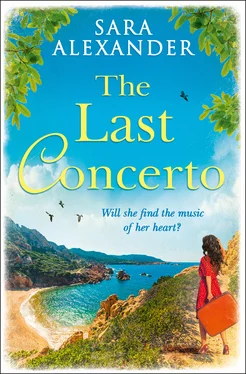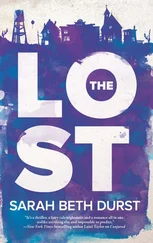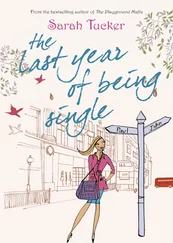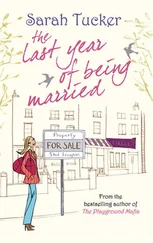Giovanna drew back and clasped Marcellino’s face in hers. ‘Eat, yes? Oh my tesoro , did they hurt you?’ More questions tumbled out, but the noise spun around the room like a gale. Grazietta muttered another snippet of a prayer before crossing herself and leaving, oily water in tow. As news spread to the crowd downstairs that the first-born had, at last, awoken, more women came upstairs and filled the room. Alba was shot a look that she recognized as her cue to bring the tray her mother had prepared. She pressed past the well-wishers and returned with the feast in hand, setting it down on his bed: fresh spianata , Ozieri’s renowned flatbread, enough cheese for a small football team, a handful of black figs, two long slipper-shaped papassini biscuits, and a glass of warm milk with a splash of coffee in it. If he wasn’t dead yet, it seemed the army of mothers were to kill him off with overfeeding.
‘ O Dio mio ,’ one of the wailers cried. ‘His eyes, Giovanna, the look in this poor child’s eyes!’
They took another breath in preparation for a further fervent chorus when a shout tore through the pause. The door flung open. Grazietta reappeared, face flushed, her circular wire glasses askew on her nose. ‘Benito’s on the television, Giova’, beni – come quickly!’
Giovanna followed Grazietta out, with the tumble of others close behind. Alba followed down the stone steps to their small living room. She’d never been in a room with so many quiet Sardinians. Even in church or at funerals words couldn’t fail to escape, a titbit of gossip, a grievance about the lack of flowers or the ostentatious abundance of them, the age of the priest or lack thereof. Now the dozen or more neighbours crammed into their room made Alba feel like the charred aubergines her mother would squeeze into jars throughout the summer.
On the small square of screen in the corner, above a chest of drawers topped with a lace doily, was her father’s brother Benito. The angle of the camera pointed up towards him; beyond, the familiar outline of the Ozieri valley in silver tones. He seemed relaxed, even though Alba was sure the words he spoke were some of the hardest he’d ever have to say. ‘I speak on behalf of all my family,’ he began. ‘The bandits have picked on the wrong man. Our family is not rich. We don’t have the money they are asking. We will not pay the ransom to release my brother Bruno.’
The lump in Alba’s throat became a stone. A murmur rippled across the room.
Then the scene snapped to men signing a form at the police station. The neighbours took it in turns to shout at the screen as they recognized their husbands, brothers, sons. The clipped voice of the Rai Uno journalist began to describe a town in revolt. The scenes flipped between the main square with men huddled in groups, back to the police station where the men were being described as signing onto a counter-army to uncover the whereabouts of Bruno Fresu. Their firearms were being registered. Shepherds from the surrounding hills had come to town to aid the search efforts, citing the fact that they knew their Sardinian hills better than any bandit. All this was happening for her father. The rescue efforts were coupled with a revolutionary protest about to take place, the journalist said.
The noise inside the stone room began to rise, the voices ricocheted over their heads to an unbearable volume. Someone called out from the street and the room began to herd out of the small door onto the cobbles. People lined the road outside her house. A cry pelted down from further up the vicolo just before Alba saw the first of the banners. A sea of schoolchildren from the upper years snaked around the corner, wooden signs above their heads. They were chanting and so were their teachers. There were decrees against the bandits. Someone shouted they had gone too far this time. Another screamed that the Fresus were one of the people, not rich folk. Even Alba’s teacher, the most prim woman she knew, waved a sign high above her head, yelling like she’d never heard her do before. The sea of students and teachers paraded past their house; there were shouts to not give up, to not give in, that Ozieri would stand against the criminal disease eating their island, that the bandits must not be bullied into taking one of their own by mainlanders. Alba should have been with her father when the men jumped out of a vehicle in the twilight. She should have been huddled with him in that damp cave, not Marcellino. A swell of guilt. Her father was the man who made her town revolt. No one marched when the rich landowners were kidnapped a few months back. There was little more than hand-wringing when the fancy American heir was kidnapped on the north-east coast the year before. There were even some hushed whispers that the rich had it coming to them, that their bandits maintained a warped equilibrium in society; the wealthy had no right to run their island as they pleased.
This time, however, they had gone too far. Her father was a hard worker; his father, Nonno Fresu, had accumulated huge debts to gain the first Fiat dealership in town. For this they were captured, for a ransom that none of them had. Bruno and his three brothers worked around the clock at the dealership. There was not wealth to speak of yet; it was swallowed by the bank. That’s why Giovanna cleaned villas in the periphery, took on extra washing, fed the babies whose mother’s milk had dried up, all to keep her own family fed.
Alba’s father was now a celebrity. He had started a revolution. Was it wrong to feel proud? Alba shook off the sharp twist of guilt, because thinking of her father in this way was the only way to stop herself picturing him shot through the head with his blood seeping out onto the fennel-scented dirt beneath him.
Alba woke to find her school grembiulino hanging on the door of the wardrobe she shared with her brother. This apron she wore over her own clothes looked like a relic from a distant past; one in which Alba played in the street, fought with her brothers, and recited poems by memory under the glare of her teacher. Life after Marcellino’s release and her father’s continued captivity was disorientating. Each time it seemed to tease reality, Giovanna would yell at her daughter for picking a fight with poor Marcellino as if his recovery rested on Alba’s behaviour alone. He was served his favourite breakfast every morning. Neighbours would stop their whisperings as he entered the room. It was like living with a celebrity recluse, and Alba suspected that her brother’s ability to mine the situation for all that it was worth, with more than a little performance thrown in, was apparent to no one but his younger sister. Thank God it wasn’t the girl , women would lament over the never-ending pots of coffee bubbled to calm the nerves of the tormented wife, but their voices were a constant reminder that she was not guiltless in all of this. If she’d been home in time, they might have got to the vignia earlier, missed the bandits perhaps. The life Alba once knew was nowhere to be found.
That morning the familiar dread of school awaited. Her black apron with the scalloped white collar a promise of normality. Giovanna took extra time saying goodbye to Marcellino. He walked beside her and Salvatore, only running ahead as usual when his friends caught up with him and enveloped him with their bombardment of questions. By the time they’d reached school Alba was sure that he had embellished his story from how it had begun in half sentences back at the house on that first day, when he’d arrived a scruff, mute in silent shock. Alba stepped through the tall gates of the elementary school, lit by the promise of life easing back to recognizable order. She took her place at the third desk from the front.
Читать дальше












